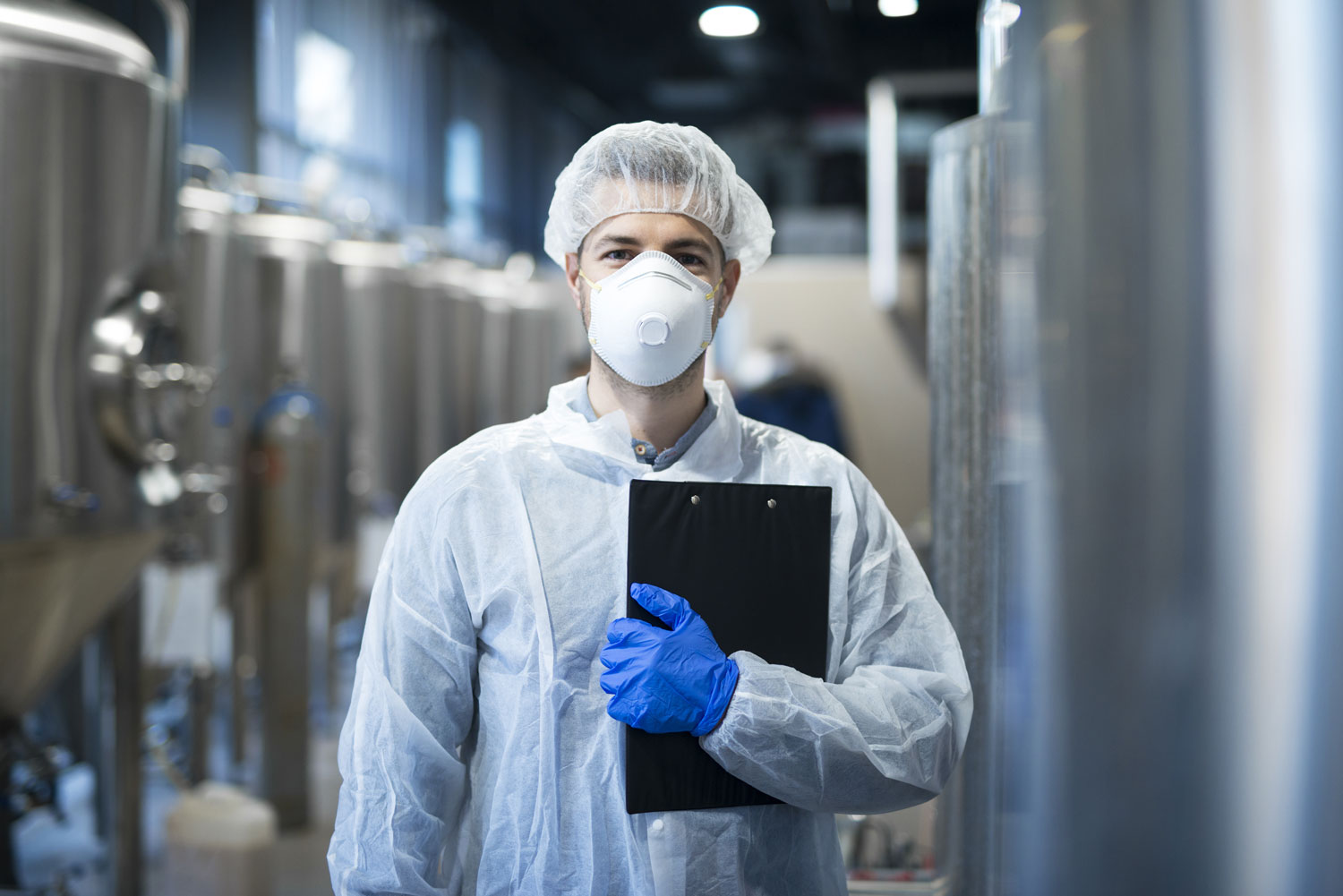How To Prevent Cross-contamination In Food Production

Cross contamination is one of the biggest issues facing businesses operating in the food production industry.
Through the implementation of preventative techniques, you can not only minimise the risk of cross contamination in your food production facility, but also boost employee morale and overall productivity.
How does cross contamination occur?
Cross contamination can happen at any stage of the food production process. There are 3 main types of cross contamination:
Food-to-food
Healthline reveals that raw, undercooked or improperly washed food can host large amounts of bacteria, such as salmonella and E. coli.
When these foods are added to non-contaminated foods, food-to-food contamination occurs. This allows harmful bacteria to spread and populate, increasing the risk of illness if consumed.
People-to-food
Lack of personal hygiene can result in your staff transferring bacteria from their bodies or clothes to the food they are preparing.
The most effective method of prevention is regular hand washing as this will ensure your workers’ hands are clean and germ-free when handling food.
Equipment-to-food
In many cases, bacteria can survive on surfaces for up to 72 hours. Surfaces and items such as countertops, kitchen utensils, cutting boards and storage containers are particularly susceptible due to high use.
Food manufacturers are responsible for washing equipment before and after it has been used. Failure to adhere to industry guidelines may resort in large volumes of bacteria contaminating food in preparation.
Why is cross contamination an issue?
Cross contamination is a huge concern for food production facilities as it can affect not only produce but also workers.
If your workers are handling contaminated food without proper personal protective equipment (PPE), it won’t be long before they fall ill. Though this may not seem like a major issue, if a large number of workers become unwell and require sick days, business operations may suffer.
Of course, the main worry is that consumers will become unwell as a result of eating contaminated food. The side effects can be mild, such as loss of appetite, nausea, stomach pain and diarrhoea, clearing up within a matter of days.
In extreme cases, symptoms such as dehydration and organ failure may arise as the result of exposure to harmful toxins. If you experience side effects which last more than 3 days, you should seek professional medical advice.
Preventative techniques
Preventing cross contamination in food production facilities is the key to preventing foodborne illnesses. With the right precautions in place, you can significantly reduce the risk of cross contamination and protect the health of your workers and consumers.
Educate your workforce
The first step is to communicate with your employees. Through regular training, you should aim to raise awareness of the issue so that your workforce understand their roles in the wider picture, as well as how their actions affect the business.
Implement a cleaning schedule
After educating your workers, you should implement an organised cleaning schedule. A well-organised company can benefit from improved operations, maximising the efficiency of your food production facility.
An effective cleaning schedule should take into consideration both daily and monthly cleaning requirements, including professional decontamination services. In light of the current pandemic, it may be necessary to hire a professional cleaning company to conduct a thorough coronavirus decontamination service on a bi-weekly basis.
Why hire a professional company?
Hiring professional cleaning experts can have a range of advantages. With access to specialist equipment and industry knowledge, a well-established cleaning company will be able to create a bespoke plan to help you meet strict health and safety standards.
For example, here at ICE Cleaning, we have access to the latest industry-leading tools and equipment. We pride ourselves on being versatile and reliable, and are able to guarantee full surface protection for 28 days with our ICE SHIELD ™ solution.
Our ICE SHIELD ™ solution uses electrostatic technology to eliminate all harmful bacteria and viruses in your workplace, and form a protective barrier over all surfaces, including machinery, equipment and touch points.
Get in touch
If you require deep cleaning, check out our page on food production facility cleaning. Using state-of-the-art technology, we’re able to provide a deep cleaning service like no other, leaving you with the peace of mind that your facility is safe and sanitary.
We also offer a comprehensive coronavirus decontamination service to combat the risk of the virus in the workplace. Our solutions are scientifically proven to be up to 4 times more effective than conventional cleaning methods. For maximum protection, we’d recommend repeating the service twice a month.
To find out more, contact us on 0208 066 0360 today to speak with a member of our friendly support team.

Speak with me today,
I’m here to help
By asking you a few questions either via phone or email I can immediately provide a realistic estimation of the cost.
You’re in good company. We’ve cleaned for the following commercial clients… View all

Why choose us?
- Cater to a wide variety of cleaning situations
- Nationwide coverage, available 24/7
- Cater to commercial and domestic clients
- Free survey provided prior to quotation
- Emergency response team
- Offer a bespoke service designed to suit all your needs
- All technicians hold professional health and safety qualifications, including BICSc, IOSH, Dewpoint Professional & Safe Contractor
We’re fully accredited
We place best practise, professional expertise and health and safety at the core of our business. We’re fully compliant with all legal obligations. You can view a list of our accreditations below, or visit our Health & Safety page for more information.











-RGB-small.1707319151.jpg)




















